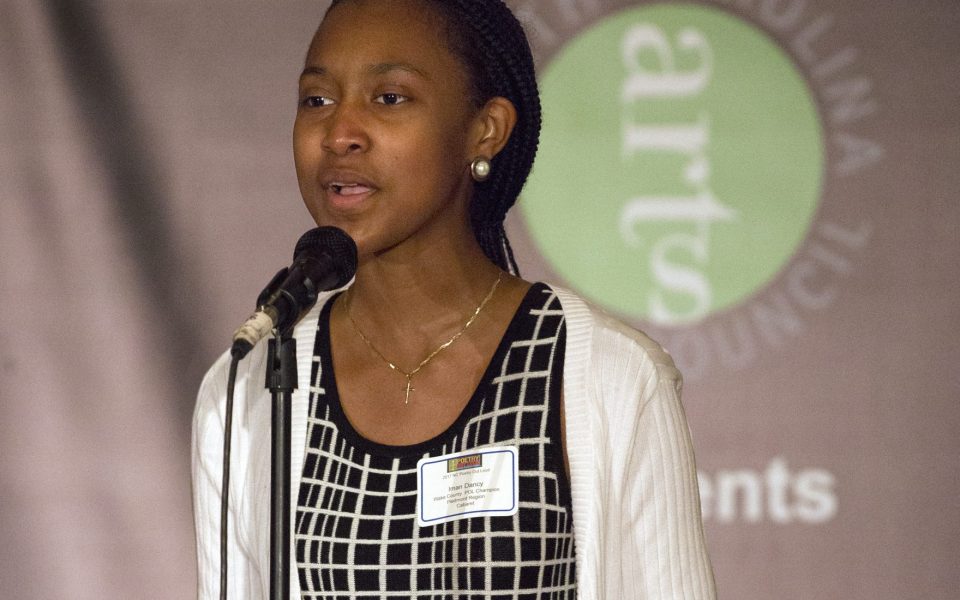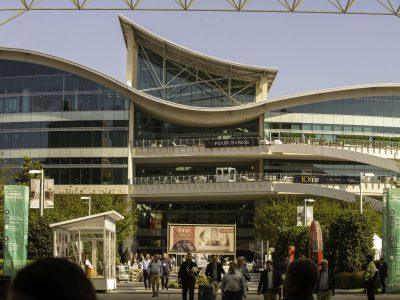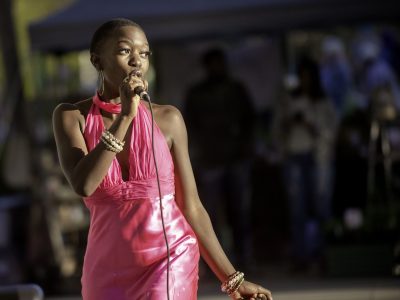Out of 5,000 high school students across North Carolina, just 31 had earned the trip to Greensboro. At Triad Stage they were sorted by region — eastern, Piedmont, western — and into rooms where the next round of competition would begin.
Spring brings bounties of high school matchups and tournaments; very few are without a ball, a net or even a teammate.
Poetry Out Loud, a nationwide contest that enriches the connection between students and poetry, doesn’t involve composition. The program supports public speaking skills, self-confidence and literary heritage, all through the remembrance and delivery of influential poems selected by each student.
Before the participants, families and friends could gather in Greensboro on March 4, all students had to conquer their English or theater classrooms, then their whole high schools, even their county. Now they would face off for the state, the winner advancing to the national finals in Washington DC.
Those representing the Piedmont region, which laid claim to all Triad participants, made their way to the Upstage Cabaret on the third floor. Inside, the competitors took seats on stools beside the stage, while all others found spots at dimly lit tables around the room.
Of the 11 Piedmont contestants, 10 were young women. They were hip, dressed up in perfectly ripped jeans and lifted shoes, confident and brave, their hair and bracelets and dresses carefully composed.
But even with confidence, reciting poetry is challenging, especially when it’s not your own. You must count on your interpretation of it; you’re the steward of its beauty, inhabiting its words and emotion.
One by one at the mic, they whispered, cried, shrieked their poems into the complete silence of the cabaret. Their cadence rose and fell in volume, even in pitch — soprano to alto to a low tenor in the span of a sentence. They mined the poems’ contents, exposing the melodious gems in impressive phonetic display.
Each student recited one poem. Then, once everyone had performed, each took the stage again to recite a second. Judges sat at a long table facing the stage, assessing physical presence, articulation, appropriate dramatization and evidence of understanding.
When the semifinals finished, it would be still hours until the judges announced the three winners.
Yorjannys Gomez, a senior at Penn-Griffin School for the Arts in High Point, spoke with her mentor and former teacher John York after the competition. Two years ago, Gomez made it past the regional round into the round of nine, where her road ended. But it was never about winning.
“At first, I didn’t like or understand poetry,” Gomez said. “But when you recite it, you have to understand. It’s a story [the poets] are trying to tell.”
Though the memorization and recitation are mostly individual acts, the practice and the performing itself has made Gomez more outgoing.
“I’m more open as a person,” she elaborated. “I can communicate and relate to people better as I encounter poems.”
York, now retired from Penn-Griffin, shared Gomez’s perception and appreciation. He has seen many students go through the program and advance to the statewide semifinal competition.
“They gain confidence, develop poise and attention to emotion,” he said.
For York, it seemed, there’s a curious, supernatural two-way street.
“It helps [the students] live the life of the poem,” he said. “And it gives the poets voice again; there’s something mystical about it.”
[pullquote] Iman Dancy represents NC at the 2017 National Finals on April 25-26 at George Washington University in DC. [/pullquote]
This year Gomez didn’t make it to the next round. Khaiyah “K-Swizzle” Barber advanced, along with Iman Dancy and Dani Coan.
All three Piedmont finalists advanced again to a last round of five, and Dancy — a student from Raleigh’s Enloe High School — walked away victorious as the statewide winner.
Join the First Amendment Society, a membership that goes directly to funding TCB‘s newsroom.
We believe that reporting can save the world.
The TCB First Amendment Society recognizes the vital role of a free, unfettered press with a bundling of local experiences designed to build community, and unique engagements with our newsroom that will help you understand, and shape, local journalism’s critical role in uplifting the people in our cities.
All revenue goes directly into the newsroom as reporters’ salaries and freelance commissions.





Leave a Reply